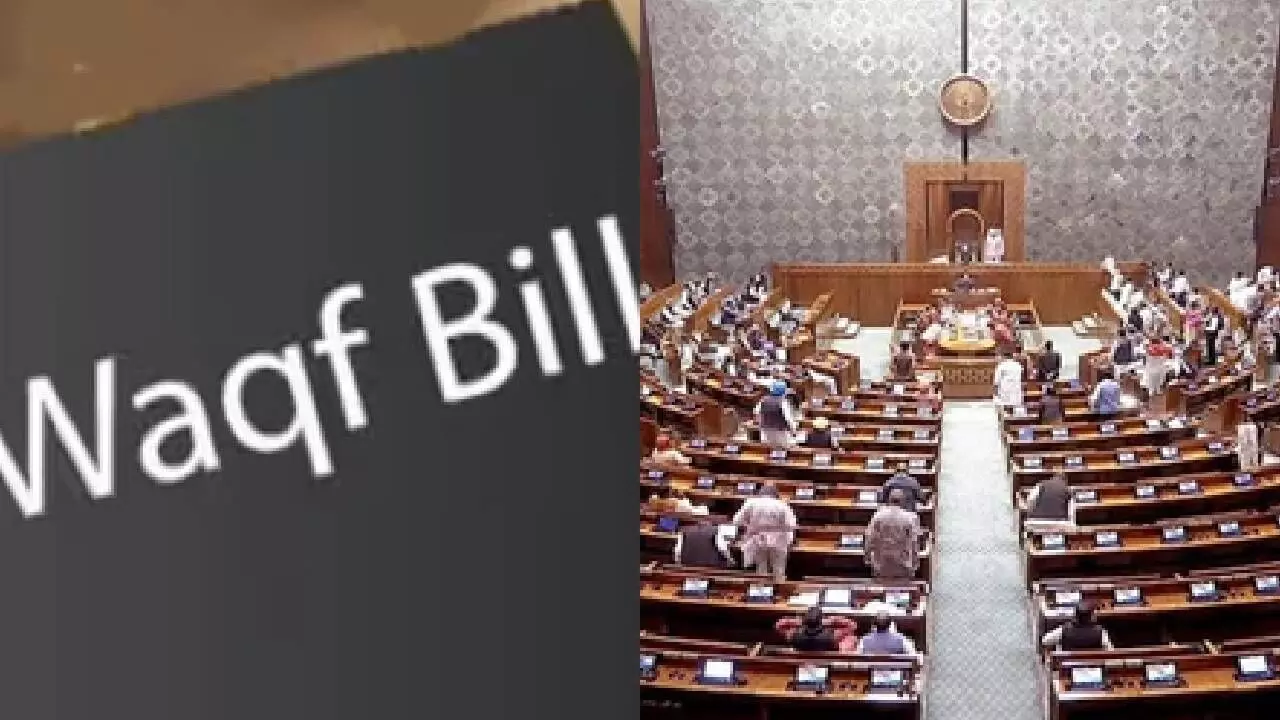Waqf Act: It’s to protect govt properties, SC told
Under old regime, due to the absence of adequate safeguards, govt properties and even private properties were declared as Waqf properties, govt tells the apex court
image for illustrative purpose

New Delhi: The Centre, in an affidavit filed before the Supreme Court, said that it brought amendments to the Waqf Act-1995, to prevent abuse of Waqf legislation, which resulted in the encroachment of government properties, apart from ensuring that the Waqf Boards in the country are properly administered and function with transparency.
“It is submitted that there have been reported misuse of waqf provisions to encroach private properties and government properties. It is really shocking to know that after the amendment brought in the year 2013, there is a 116 per cent rise in auqaf area,” said the preliminary affidavit filed by the Union Ministry of Minority Affairs.
The Centre, in its reply document filed before the top court, said that it was found that most of the Waqf Boards have been functioning in the “most non-transparent manner” and have either not uploaded the details in public domain or have uploaded partial details.
“In an era of transparency, it is absolutely necessary that all details concerning Waqf/Waqf boards be uploaded in Waqf Asset Management System of India (WAMPSI) portal,” it contended.
The Union government said that under the old regime, due to the absence of adequate safeguards, government properties and even private properties were declared as Waqf properties.
“The provisions of Sections 3A, 3B and 3C take care of the said situation which has been prevailing since several decades. It is submitted that there are startling examples whereby the government lands or even the private lands were declared as waqf properties,” it said in the affidavit.
The Union government said that the Waqf (Amendment) Act-2025, was passed with the objective of modernising the management of Waqf properties in India through transparent, efficient and inclusive measures. It argued that the reforms introduced are directed solely at the secular and administrative aspects of Waqf institutions – such as property management, record-keeping, and governance structures – without impinging upon any essential religious practices or tenets of the Islamic faith.
The affidavit highlighted that despite there being a regime of mandatory registration of all kinds of waqf, including ‘waqf by user’, making registration mandatory, individuals or organisations used to claim private lands and government lands as waqf including under 'waqf by user' which not only lead to deprivation of valuable property rights of individual citizens but similarly unauthorised claims over public properties.
“While registration of all kinds of waqfs (including ‘Waqf by user’) has always been mandatory, the legal regime never required the waqf deed as a mandatory condition. In other words, it was mandatory to register ‘Waqf by user’ even in the absence of a waqf deed by giving other details for more than 100 years.”
Referring to the recently introduced Section 36(1A), the Centre said that the 2025 amendment provides that a Waqf may now be established only through a valid deed of Waqf.

